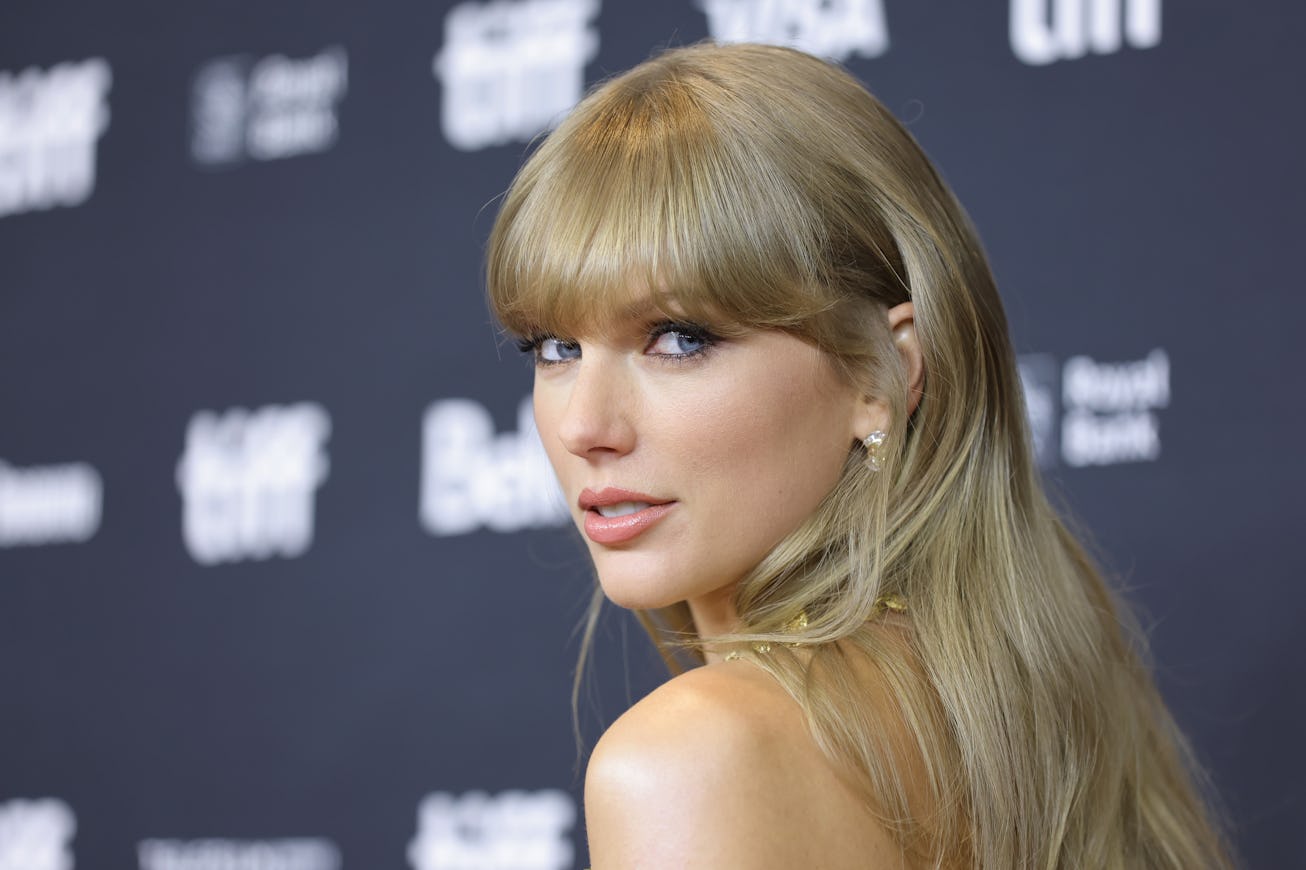
Culture
Taylor Swift's "Sexy Baby" Lyric Is More Than A 30 Rock Reference
“Sexy baby” is a longtime cultural phenomenon.
In a tale as old as time, another Taylor Swift album is out, and the internet has questions. This time, they’re centered around two words in the synth-pop, self-hating anthem “Anti-Hero”: “Sexy baby.”
"Sometimes I feel like everybody is a sexy baby/ And I'm a monster on the hill/ Too big to hang out," she sings. In a work of art that is among her most lyrically dense, the fact that “sexy baby” is what’s lighting the Internet ablaze is disappointing, but not surprising.
Sexy and baby are two words that we don’t like hearing together with good reason; for the well-adjusted, they are an oxymoron. There are countless articles in the four and a half days since Swift’s latest album Midnights came out that question what “sexy baby” means. Most of the articles have seemed to settle on the lyric being a 30 Rock reference, in an episode where Liz Lemon accuses a new TGS with Tracy Jordan writer of acting like a "sexy baby" to seduce men.
Some articles even link the reference to a slight from 30 Rock creator Tina Fey, who joked about Swift’s love life at an awards show in 2013; I doubt Swift cares enough about a nearly decade-old non-feud from a TV show that is only relevant in the realm of nostalgia. To pin “sexy baby” as a 30 Rock reference is embarrassingly naive; the concept of a sexualized child, however uncomfortable, is a part of the bedrock of our culture around sex and desire — and it is utterly perplexing to me that people are confused.
Pedophilia is far more common than anyone wants to acknowledge, and even if that is uncomfortable, it is inextricably linked with the omnipresent phenomenon of the “sexy baby.” The idea of a girl or woman who is infantilized and subsequently sexualized, either in dress or demeanor, is present in everything from Victoria’s Secret PINK to actresses in pigtails. Sexy baby is school girls uniforms; it’s sugar babies; it’s A24’s Red Rocket; it’s Chloe Cherry’s Instagram handle @perfect_angelgirl; it’s “sexy baby voice;” it’s Lolita, of course, but also the Depop hashtag #lolita; it’s hair ribbons and baby doll dresses and Eileen Kelly of Killer and a Sweet Thang’s New York Post headline that reads: “I fuel fantasies of men who want sex with young girls, and I’m fine with it.” (It’s also the fact that she reportedly didn’t say this.) And that’s just a drop in the bucket of pedophilia-seeped mainstream culture.
Why are we all pretending to not know what Swift is talking about when she’s talking about a concept — however uncomfortable it may be that is foundational to our culture? Why do we want to just chock it up to Swift being cryptic or interpret the lyric as an Easter egg when she’s just talking about a fairly common phenomenon? What if she’s just a skilled songwriter who encompassed a pillar of culture into two words?
But nevertheless, Twitter and TikTok persisted in being shocked and confused over the lyric. People love to pretend Swift doesn't know what she’s talking about, or that she’s meme-thirsty. Some analyses point to how youth is sexualized or younger women are preyed upon, but there’s not an analysis that mentions Lolita.
If you want to use the lyric to mine Swift’s psychological underpinnings (which, fair!), a more compelling read of “sexy baby” is that it is another moment where she references a fear of aging and subsequent irrelevancy.
“Are we only biding time 'til I lose your attention?/ And someone else lights up the room? People love an ingénue,” she sings on “Nothing New.” “Will you still want me when I'm nothing new?”
Sure, Swift might be aging, but not enough to start peppering in references from a nearly two decade-old TV show. We can give her more credit than that.